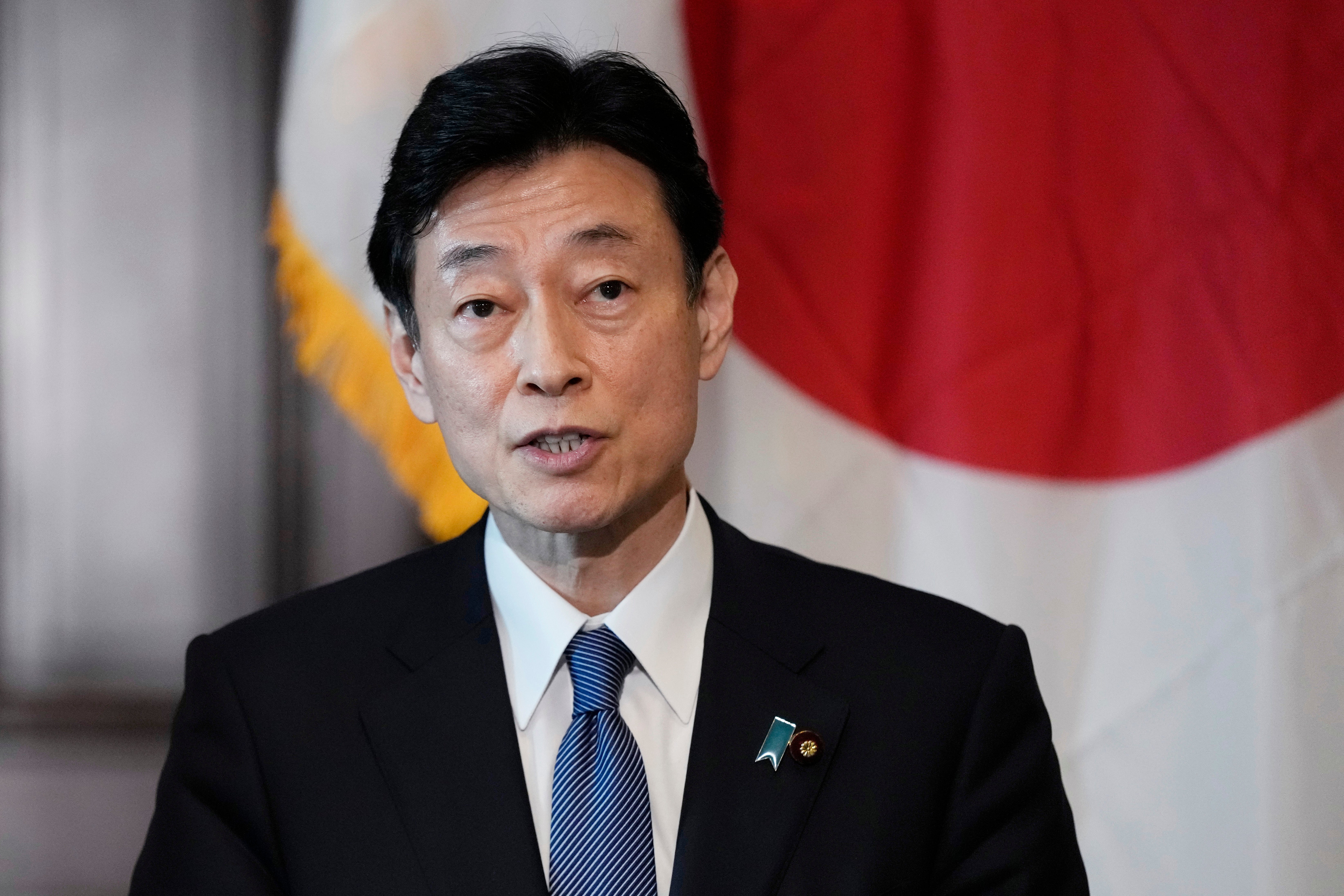Japan to reinstate South Korea as preferred trade nation from July 21 as two sides improve ties
Japan announced Tuesday a decision to reinstate South Korea as a preferred nation with fast-track trade status from July 21, virtually ending a four-year economic row that was strained during their bitter historic disputes

Japan announced a decision Tuesday to reinstate South Korea as a preferred nation with fast-track trade status starting July 21, virtually ending a four-year economic row that was further strained during their bitter historic disputes.
Trade Minister Yasutoshi Nishimura told reporters that Japan and South Korea have also agreed to set up a framework to review and follow up on the systems as needed.
Japan and South Korea have been rapidly mending their ties as they deepen three-way security cooperation with Washington in response to growing regional threats from North Korea and China.
A reinstatement of South Korea's preferential status next month would end a four-year trade dispute that began in July 2019 when Japan removed South Korea from its “white list” of countries given fast-track approvals in trade as ties deteriorated over compensation for Japanese wartime actions.
Japan’s tightening of trade controls against Seoul was an apparent retaliation for South Korean court rulings in 2018 that ordered Japanese companies to compensate Korean workers for abusive treatment and forced labor during World War II, when the Korean Peninsula was under Japanese occupation.
Japan also tightened export controls on key chemicals used by South Korean companies to make semiconductors and displays, prompting South Korea to file a complaint with the World Trade Organization and remove Japan from its own list of countries with preferred trade status.
Their ties have improved rapidly since March on an initiative by South Korean President Yoon Suk Yeol’s government to resolve disputes stemming from compensation for wartime Korean forced laborers. Yoon also traveled to Tokyo for talks with Prime Minister Fumio Kishida and agreed to rebuild the countries’ security and economic ties.
After their talks, South Korea withdrew its complaint at the WTO. Japan simultaneously confirmed its removal of the key chemicals export controls. South Korea has also since reinstated Japan's preferential trade status.
Meanwhile, the Japanese government has been trying to gain South Korea’s understanding in a plan to release to sea the treated radioactive water from the tsunami-wrecked Fukushima Daiichi nuclear power plant. It's a highly contentious plan that faces strong opposition from South Korea and other neighboring countries, as well as local fishing communities concerned about safety and reputational damages.
Bookmark popover
Removed from bookmarks